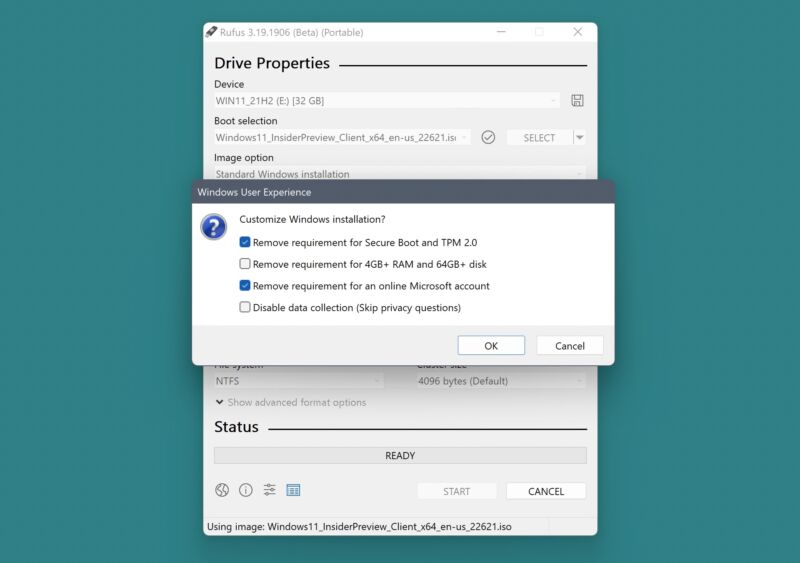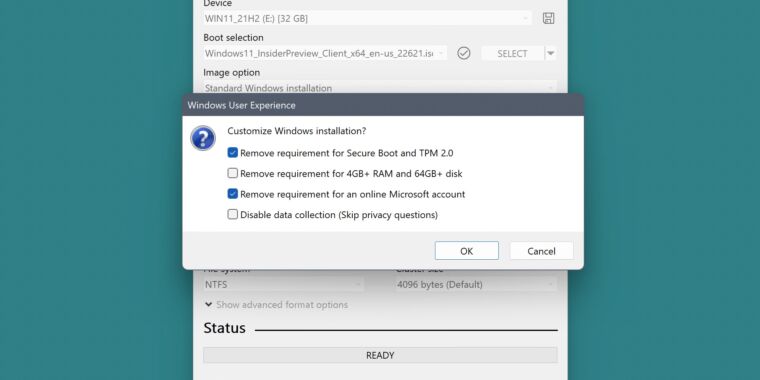
Andrew Cunningham
One of the new “features” coming to the Windows 11 22H2 update is a Microsoft account requirement for all new installations, whether you’re using the Home or Pro version of the operating system. Which is a shame, because the 22H2 update fixes some of Windows 11’s original shortcomings and adds some nice quality-of-life improvements.
An easy solution to this requirement is the Rufus USB formatting tool, which can create USB installation media for Windows and a variety of other operating systems. Rufus has already offered some flags to remove Windows 11’s system requirement checks from the installer, eliminating the need for clumsy Windows registry edits and other workarounds. But the beta version of version 3.19 also removes the Microsoft account requirement for new installations, making it easy to set up a new Windows PC with a traditional local account.
When setting up Windows 11, make sure you do not connect your PC to the Internet before creating your user account. This trick worked to get around the Microsoft account requirement in Windows 11 Pro and some later versions of Windows 10, but will be completely removed from Windows 11 22H2. The Rufus tool only reverts to the pre-22H2 status quo.
If you use Rufus to get around Windows 11 system requirements, your system will still be “unsupported” once you have Windows 11 up and running. That means accepting periodic reminders about unsupported hardware and the vague threat that Microsoft may eventually stop providing updates and security patches for unsupported systems. On the other hand, Rufus also makes Windows 11’s TPM and security features not work once the OS is installed, so if you want to create a single USB installer that covers both supported and unsupported systems, Rufus makes that possible. .
Microsoft offers its own media creation tools for people who want to create USB installation drives for Windows 10 or Windows 11, but it clearly doesn’t offer the same workarounds for the company’s requirements.
List image by Getty Images

